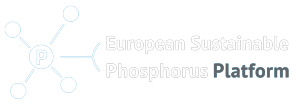RE-CORD
RE-CORD is a no-profit private research centre founded in 2010 and participated, among others, by the University of Florence and the Polytechnic of Turin. RE-CORD has been working for years in the fields of Bioeconomy, Circular Economy, and Renewable Energies, and today is a reference point for research, demonstration and industrial development in the sector. For its activity, RE-CORD relies on a highly-qualified staff with competencies in a wide range of disciplines (mechanical, energy, environmental, and chemical engineering, agronomy, chemistry, biotechnologies, physics, economy), as well as a wide network of partnerships. RE-CORD owns an analytical laboratory, equipped with instruments for the study and the characterization of biomasses and other materials, as well as an experimental area with pilot plants for the thermochemical conversion of biomasses and residual matrices, and an experimental area for agronomic trials in open field or in climatic chamber.
In the last years, the study of char production processes and systems from different organic and residual matrices, their treatment for the creation of new products or for the improvement of the characteristics of existing products, and the characterization of the products of these processes, has been an important part of RE-CORD's activities. This know-how has also made RE-CORD a point of reference for institutions and policy makers, as well as industrial stakeholders.
- Activities related to phosphorus and nutrients
A core activity carried out by RE-CORD is the recovery of (critical) raw materials from biowaste, in the view of their circular valorisation. To this target, RE-CORD studied and developed an integrated treatment involving thermochemical and chemical processes, aiming at the recovery of carbon and inorganic compounds from biowaste streams of different origin. In particular, RE-CORD studied the application of this integrated process on the sludge from municipal and industrial wastewater treatment plants. By the process, carbon, phosphorous and other nutrients (calcium, magnesium, potassium) can be recovered from sludge. This topic was deeply studied within several private and public-funded projects which brought to the development of an optimized and sustainable sludge treatment system to produce a NP fertilizer compound and a biobased coal to be applied in different industrial sectors.
The processes developed by RE-CORD are tested in real environment by means of internally designed and operated pilot plants, all located in REC PARK, the RE-CORD’s experimental area. In REC PARK, pilot plants are available and utilized:
- PYROK – Slow pyrolysis rotary kiln of 100 kg/h capacity
- SPYRO – Pyrolysis auger type reactor of 2-5 kg/h capacity
- HTL – A 2 lt/h continuous hydrothermal liquefaction unit
- CHARLENE – A chemical leaching unit of about 30 lt/h capacity equipped with solid-liquid separation unit.
- CARBON – A 50 kg/h downdraft fixed bed slow oxidative pyrolysis unit
- A pyrogas multi-step condensation unit equipped with Micro-GC gas analysis.
- A quartz tube furnace for gas cracking and physical activation tests
- A 10 kg/h pelletization unit
A wide range of biowaste, sewage and industrial sludge provided by several private facilities (Urban WWTP, agro-food, biomaterials, biofuels), have been tested in RE-CORD slow pyrolysis and chemical leaching pilot plants, leading to the production of relevant amount of material and contributing to RE-CORD’s knowledge of the technology.
On the basis of the achieved results, more than 95 % of phosphorus was extracted and recovered from all treated biowaste streams.
Given its interest in phosphorus extraction and in organic fertilizers sector, RE-CORD decided to join ESPP so that to cooperate with other stakeholders in the development and identification of sustainable nutrients recycling systems. Moreover, RE-CORD can contribute to ESPP’s mission thanks to its role of innovation provider, by its research activity aimed at the development of new strategies of phosphorous recovery from waste, involving both the waste and water treatment sectors. In addition, RE-CORD can act as intermediator among the market, stakeholder and regulators, with a high commitment to the phosphorous challenge.
Website: www.re-cord.org
Contact person: Andrea Salimbeni
